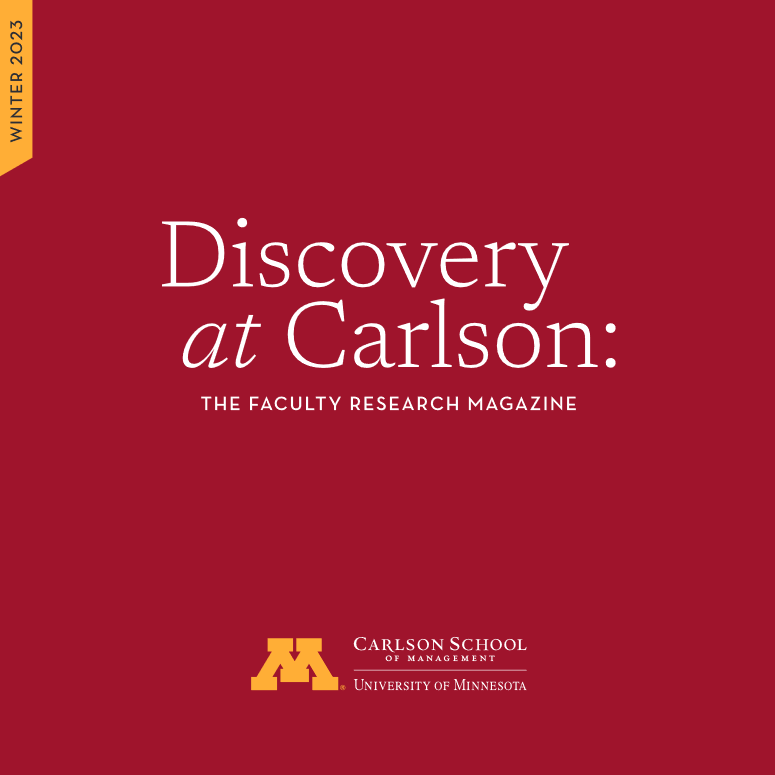
How Voting and Elections Impact Conspiracy Beliefs
Tuesday, January 17, 2023
BY CHRIS MIKKO
While there's no shortage of research as to why conspiracy theories develop, there's been little study on what might cause them to fade.
Professor Kathleen Vohs explores in this new research, “Do Voting and Election Outcomes Predict Changes in Conspiracy Beliefs? Evidence from Two High-Profile U.S. Elections,” published in the Journal of Experimental Social Psychology.
Vohs, Land O’Lakes Professor in Marketing and Distinguished McKnight University Professor, along with Carlson PhD student Sangmin Kim and colleagues, used the 2020 U.S. Presidential election and 2021 Georgia Senate runoff as test cases. The team surveyed adults to see if they voted in the races and if their preferred candidates won or lost. Exploring both facets—voting and election results—allowed researchers to explore different psychological motives. Their findings suggest that voting can satisfy the need to feel a sense of control. And if the election turned out as hoped? That confirms they were right to support their party or candidate.
The researchers found that conspiracy beliefs diminished mainly when people’s preferred candidate won, especially so among people who voted. Vohs suggests people’s sense that they have control over important outcomes in their life and the sense that others share their political ideology can potentially serve as antidotes to conspiracy theories.
Related Research on Social Influence and Behavior
Associate Professor Gaoqing Zhang
Paper: “Accounting Manipulation, Peer Pressure, and Internal Control”
Journal: The Accounting Review
Published: January 2019
Takeaways:
- A firm’s manager manipulates more if he or she expects that peer firms’ reports are more likely to be manipulated.
- If one firm reacts to regulations by investing in better internal controls that reduce manipulation, peer firms follow suit.
Professor Rachna Shah and Professor Karen Donohue
Paper: “The Decision to Recall: A Behavioral Investigation in the Medical Device Industry”
Journal: Journal of Operations Management
Published: September 2018
Takeaways:
- The more detectable a product defect is to the physician, the less likely it will be recalled.
- Managers view physicians as trustworthy final quality inspectors who will screen out an easily detectable issue, removing the need for a recall.
- When managers better understand the root cause of a product failure, they’re more likely to recall.

